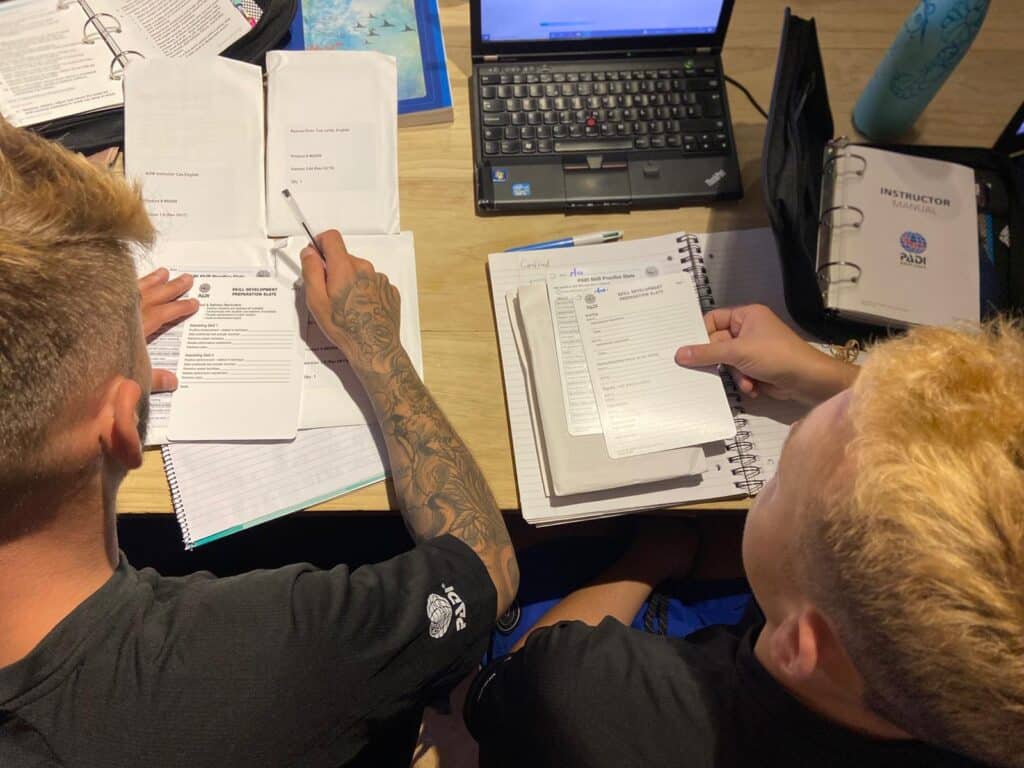If you’re reading this, you’re likely gearing up for one of the most exciting and rewarding steps in your professional scuba diving career: the PADI Instructor Development Course (IDC).
This course is a critical milestone, where you will transition from an enthusiastic dive professional to a certified PADI Instructor, ready to teach and inspire the next generation of divers. To make the most of this transformative experience, preparation is key. Here’s a comprehensive guide to helping you prepare for your IDC and how to set yourself up for success.
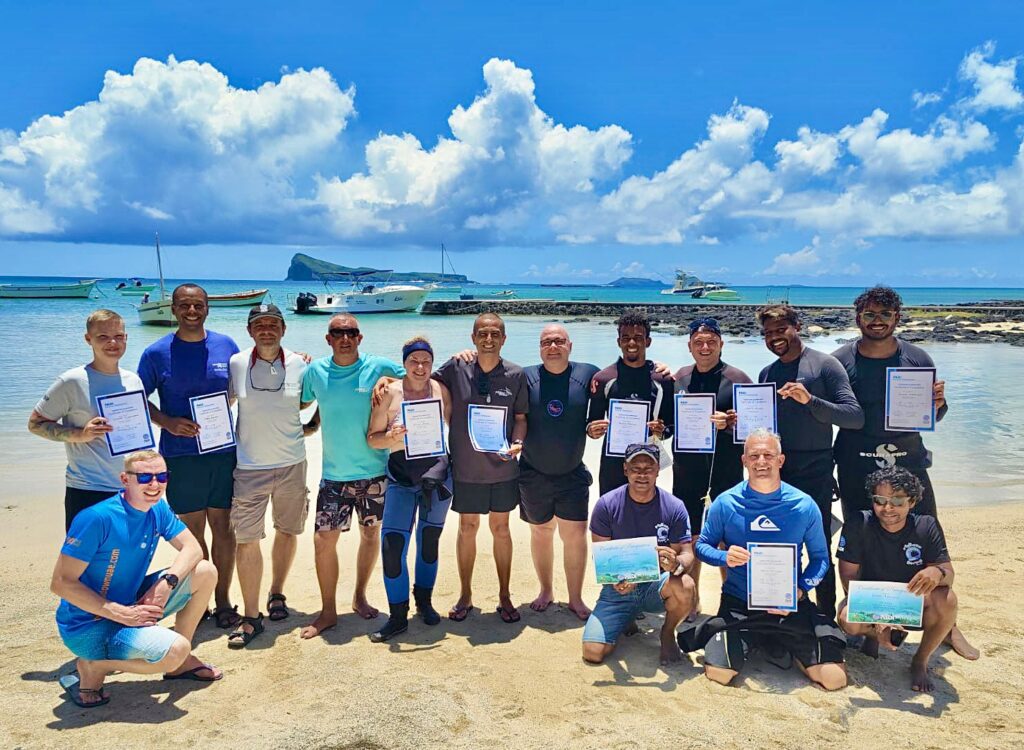
1. Review Your Dive Theory
The IDC will put your knowledge of dive theory to the test, including physics, physiology, and dive equipment. Refresh your understanding of:
- Dive Physics: Pressure, buoyancy, and gas laws.
- Dive Physiology: The effects of pressure on the body, gas exchange and decompression illness.
- Decompression Theory: Dive tables, dive computers, and dive planning.
- Dive Equipment: How it works and how to troubleshoot common issues.
Top Tip: Review Section 9 of your PADI Divemaster eLearning, and/or practice common Dive Theory Examination Questions in the Diving Knowledge Workbook that you have access to in your PADI IDC eLearning Crewpak.
Here at Crystal Divers, we usually run in-person full and/or prescriptive classroom presentations to help bridge any gaps in IDC Candidates’ Dive Theory Knowledge or understanding. Be sure to check in with your PADI Course Director(s) and/or IDC Staff Instructors, to see if they include any such revision before the IDC, during the IDC Prep period for example.
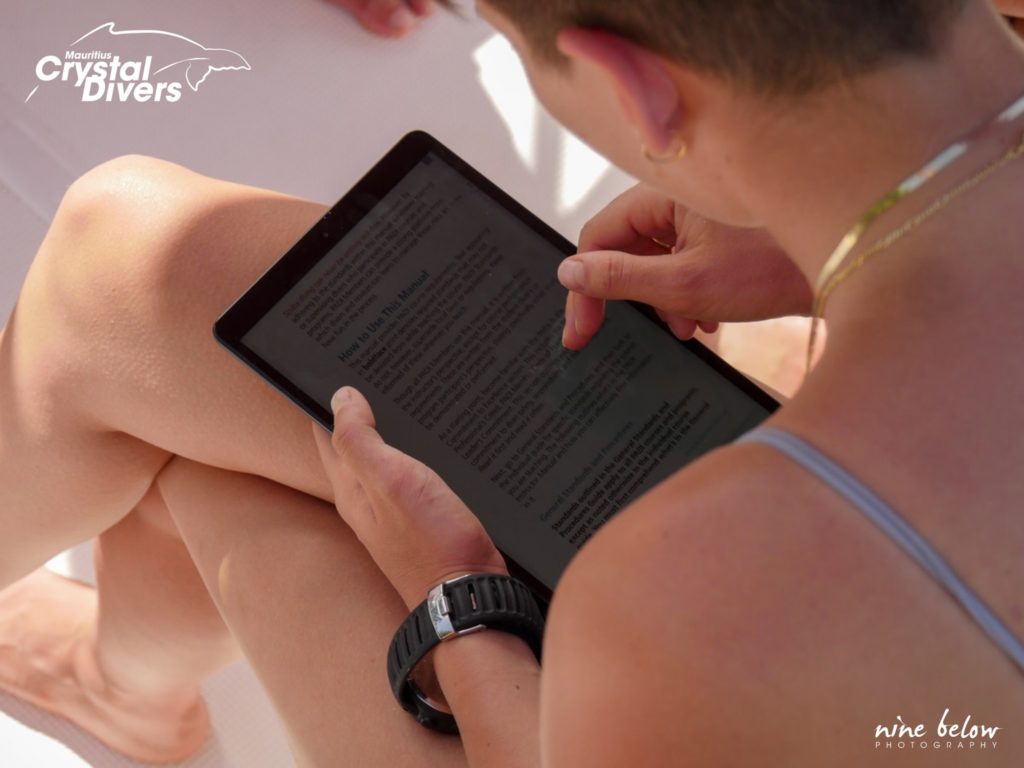
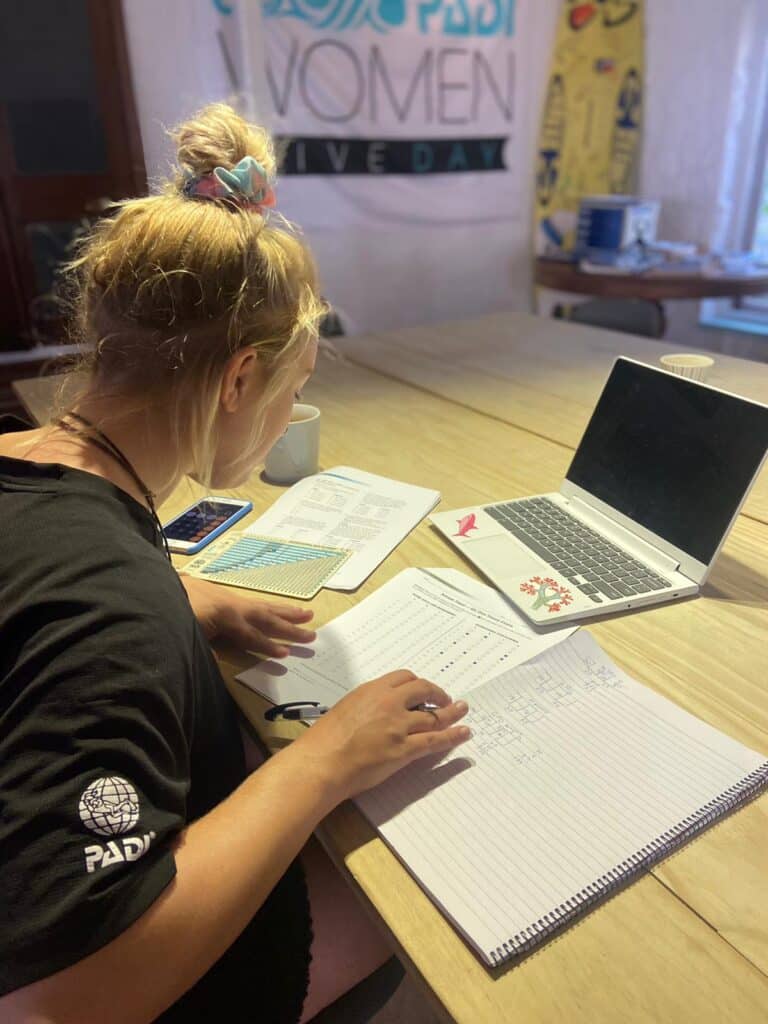

Top Tip: A great way to brush up on, and extend your working knowledge of scuba diving equipment is to complete the PADI Equipment Specialist Course!
2. Practice Your Skills
The IDC will assess your proficiency in various scuba skills. To ensure you’re at the top of your game:
- Review Skill Demonstrations: Make sure you can confidently perform and demonstrate key skills from the PADI Open Water Course like mask removal and replace, regulator recovery, and the CESA.
- Refine Your Techniques: Practice underwater skills in different confined water settings, to ensure you can demonstrate and present them with ease.
- Get Feedback: Work with an experienced IDC Staff Instructor who can provide constructive feedback on your technique.
Top Tip: No access to a pool right now? No problem, practice your skills dry in the mirror at home! Work on emphasising each key step or critical attribute in the skill. And don’t forget to slow everything down! Check out some of our WAGOLL videos HERE.
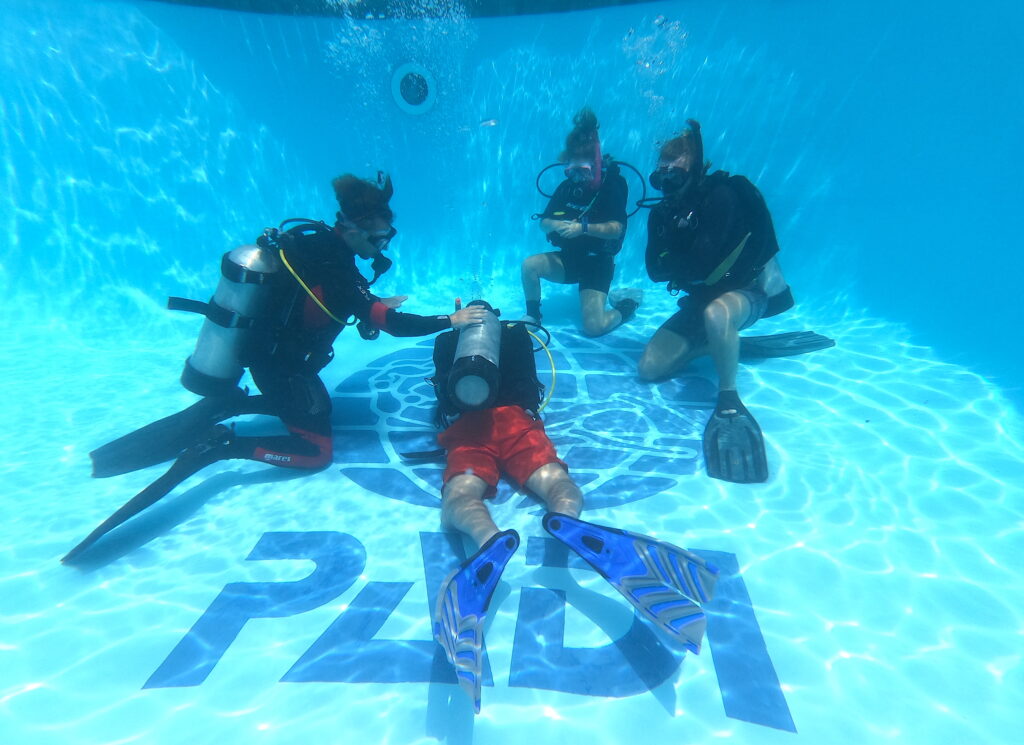
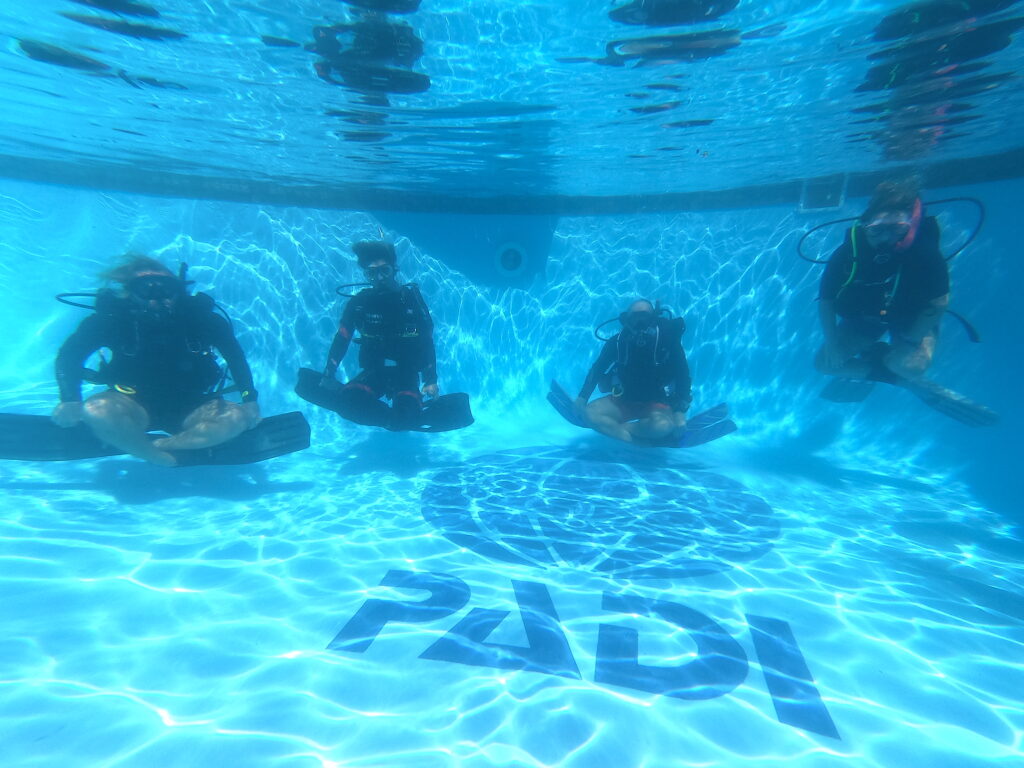
3. Pack Like a Pro
What scuba diving equipment will you need to complete an IDC?
Here at Crystal Divers, we expect all of our Professional Candidates to own their own full set of scuba diving gear, including a pocket mask and an eRDPML.
Not only does this make you more employable, but it’s also required by PADI Standards. As a PADI Professional, your equipment must include (as well as a BCD, Regulators and Fins) a Mask and Snorkel, Compass, Cutting Device, Dive Computer, Timing Device, Signalling Device (one you can see, such as an SMB, and one you can hear, such as a whistle), as well as a good quality spool of at least 30m.
Set yourself up for a bright future in the industry – invest into the equipment you need to help you succeed.
Top Tip: A lot of Dive Computers on the market have an integrated stopwatch and/or compass feature. This prevents you from having to buy three separate devices and looking like a Christmas Tree underwater!
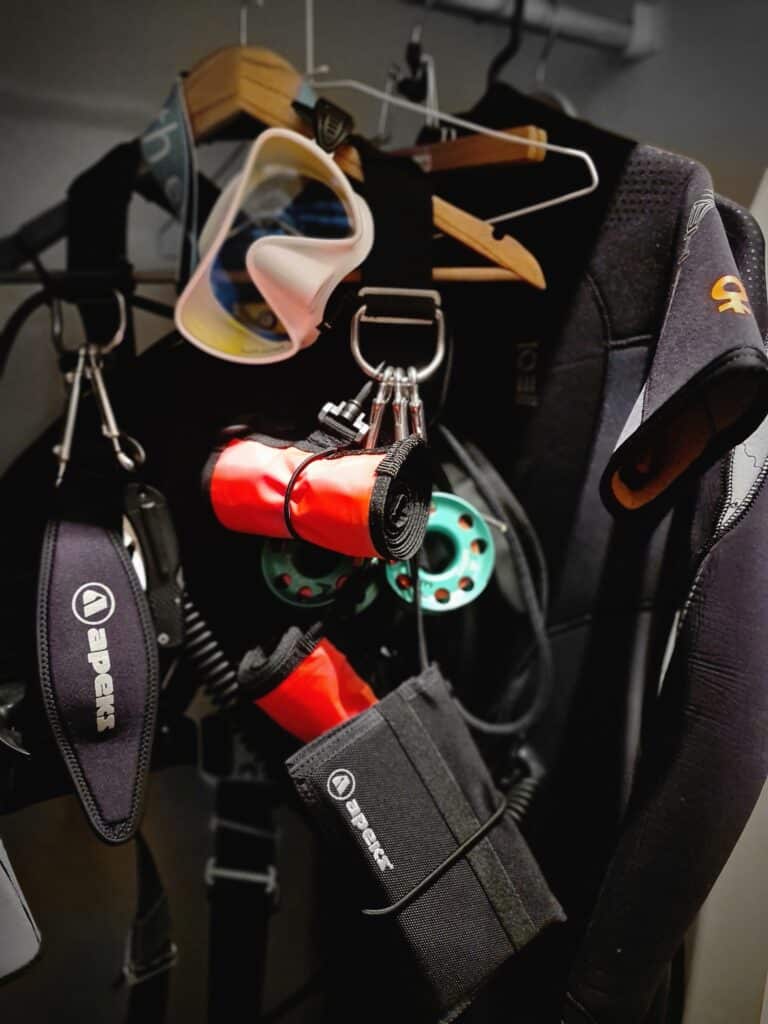
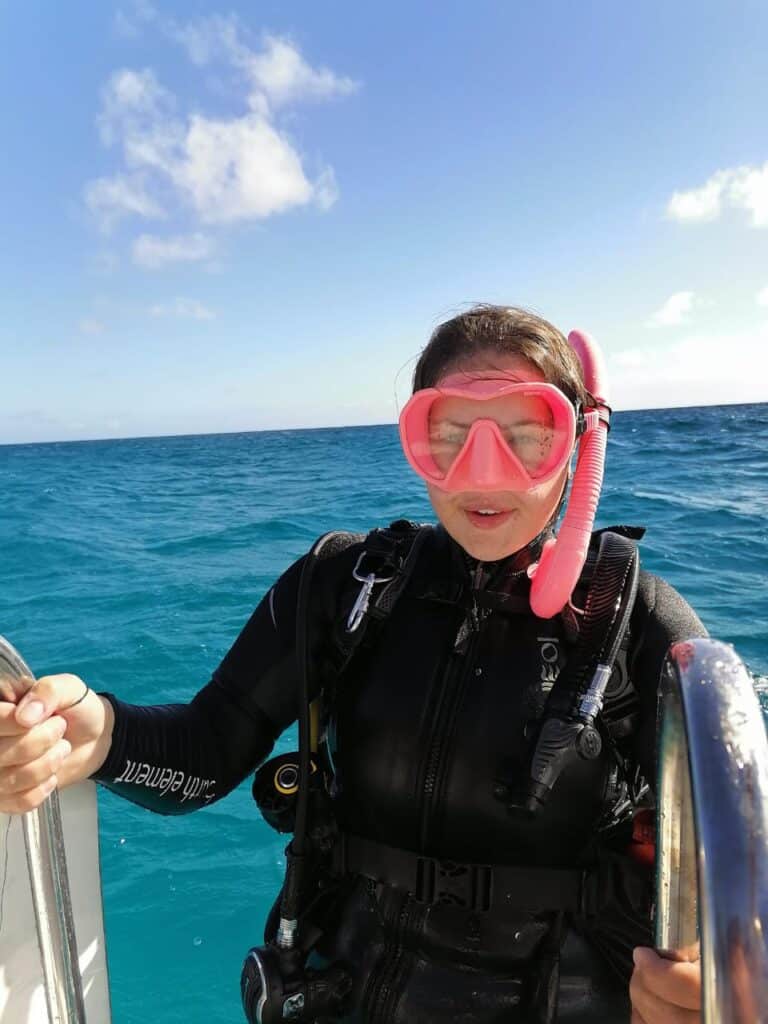
Remember: Don’t forget to think about what you will wear underwater – whether that’s a wetsuit, Thermocline or rash guard and shorts. And no, teaching or training in just a bikini or board shorts doesn’t scream ‘professional’.
4. Know your PADI Standards
Familiarize yourself with the latest version of the PADI Instructor Manual and the standards for each PADI program. Understand the learning objectives and performance requirements for each course you can and will be able to teach. Being well-versed in the PADI System and its Standards will help you navigate the IDC more smoothly.
As a PADI Member, you will also have access to a Digital Suite of eLearning material, so that you can see what your student sees! Not sure if you have access to this? Drop your local PADI office a message to make sure it’s landed in your eLearning platform.
Top Tip: You can download the latest version of the PADI Instructor Manual for free via the Training Hub on the current version of the PADI Pro Site. And don’t forget to stay up to date with the quarterly Training Bulletins.
Remember: As per the PADI Membership Agreement, it is your responsibility to stay up to date with any standard changes or industry updates. Training Bulletins are published quarterly.
You can access them by signing up for live webinars delivered by your local PADI Office, or read them via the Surface Interval Newsletter, Undersea Journal Magazine or the PADI Pro Site Training Hub.
5. Enhance Your Communication Skills
Effective communication is crucial in teaching diving. Work on:
- Public Speaking: Practice speaking clearly and confidently. Join a public speaking group or take a course if necessary.
- Listening Skills: Active listening will help you address students’ needs and concerns more effectively.
- Feedback Delivery: Learn how to provide constructive feedback that encourages improvement and builds confidence.
Top Tip: Record yourself speaking, and play it back to see where you can improve. It might be to increase the volume of your voice, and/or slow down your speaking pace.
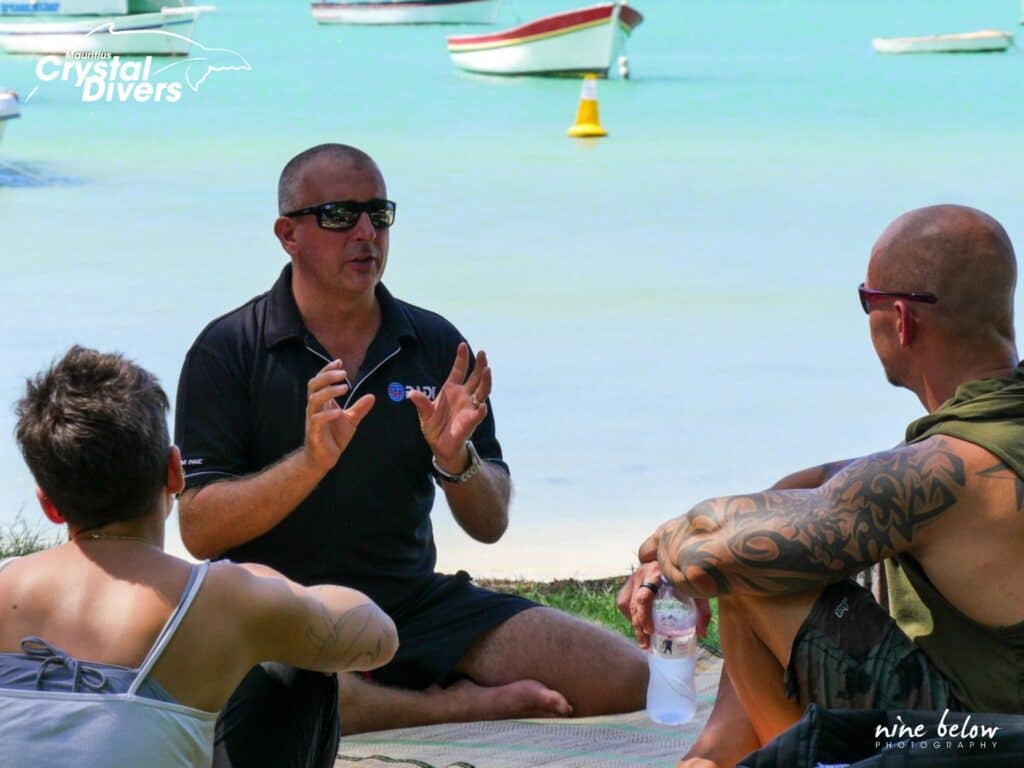
6. Take Care of Your Physical and Mental Health
The IDC can be physically and mentally demanding. Ensure you’re in good shape by:
- Staying Fit: Regular exercise and a balanced diet will help you handle the physical aspects of the course.
- Managing Stress: Practice relaxation techniques and stress management strategies to stay calm and focused during the course.
Top Tip: Plan your food during the IDC ahead of time, so you know what you’ll be eating when, and won’t be thinking or diving on an empty stomach. Don’t forget to hydrate!
7. Get Comfortable with the IDC Environment
Familiarize yourself with the location and logistics of your IDC:
- Travel Arrangements: Ensure your travel and accommodation are sorted out well in advance.
- Dive Conditions: If the course is held in a location with specific dive conditions, try to get accustomed to them beforehand.
Top Tip: Arrive ahead of time to give yourself chance to get over jet lag, get in a couple of fun dives and find your way around.
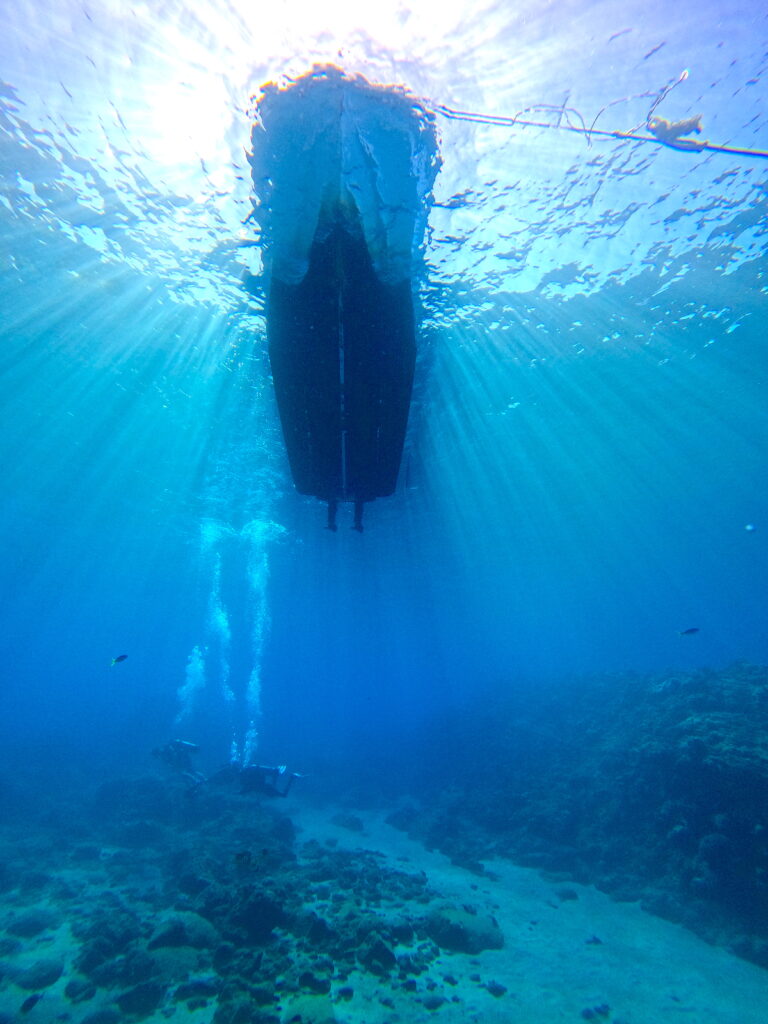
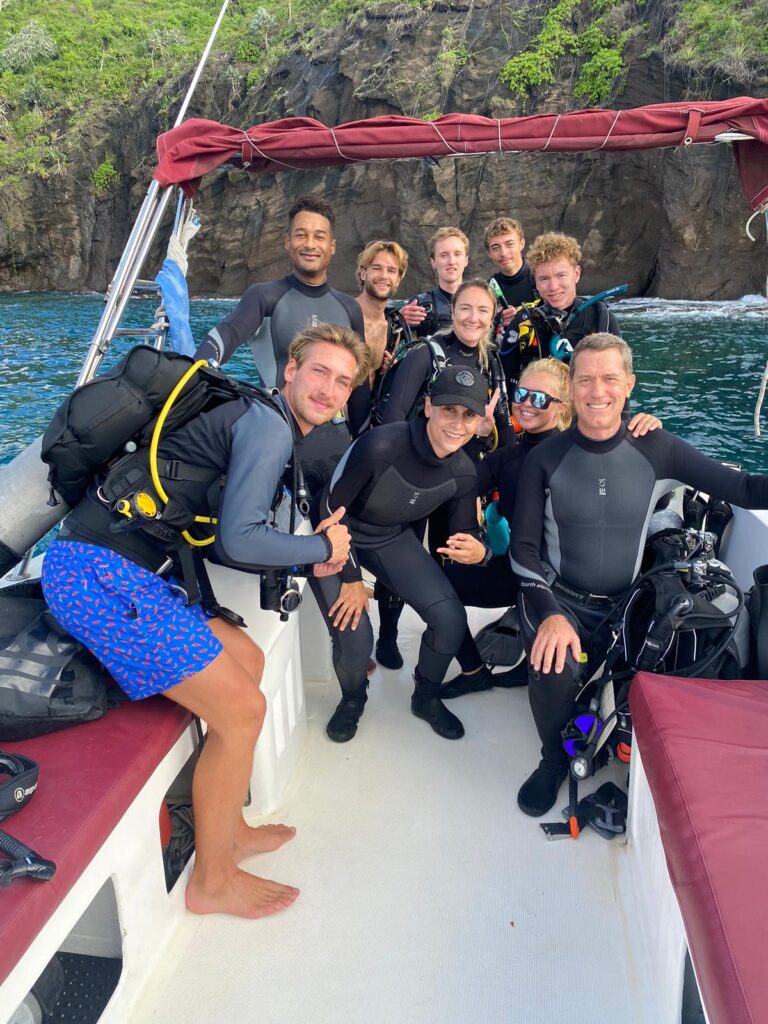

8. Network with Fellow Candidates
Connecting with other IDC candidates will provide mutual support and shared insights. Set up or join dedicated What’s App or Social Media groups to exchange tips and experiences with other IDC candidates.
Remember, your team should be your biggest resource, so work together not as individuals!
Top Tip: Organise regular team dinners and drinks for optimal bonding time.

9. Maintain a Positive Attitude
Before starting the IDC, set clear and achievable goals for yourself, and what you want to achieve before, during and after your IDC journey.
Your mindset will significantly impact your experience.
Stay positive, open to learning and constructive feedback, and adaptable to new challenges. Remember, the IDC is an opportunity for you to grow, develop and refine your skills and knowledge as a scuba diving professional.
Top Tip: You will only ever do your IDC once – make it count with the right Course Director(s) and the right PADI 5 Star IDC or Career Development Centre.
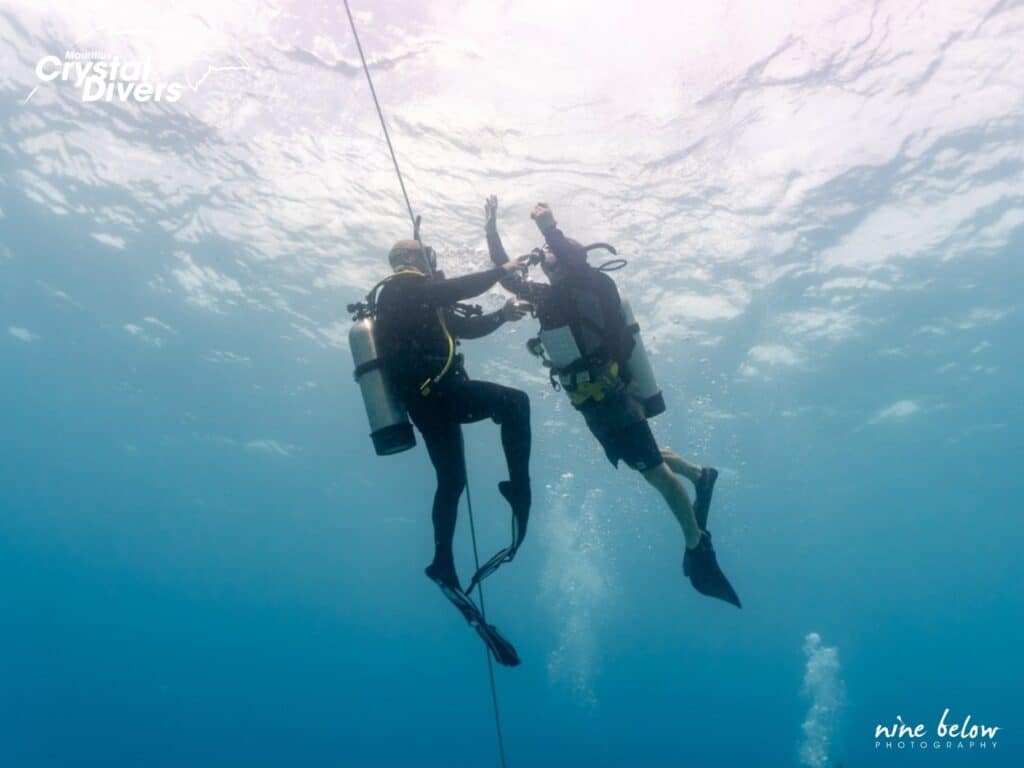
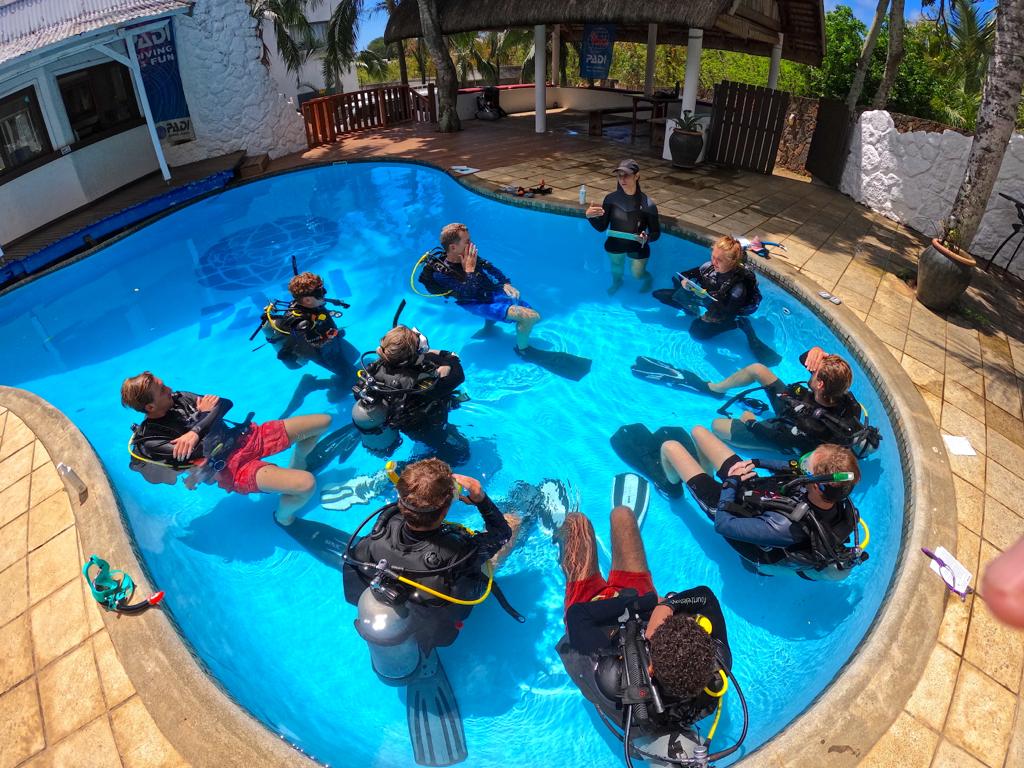
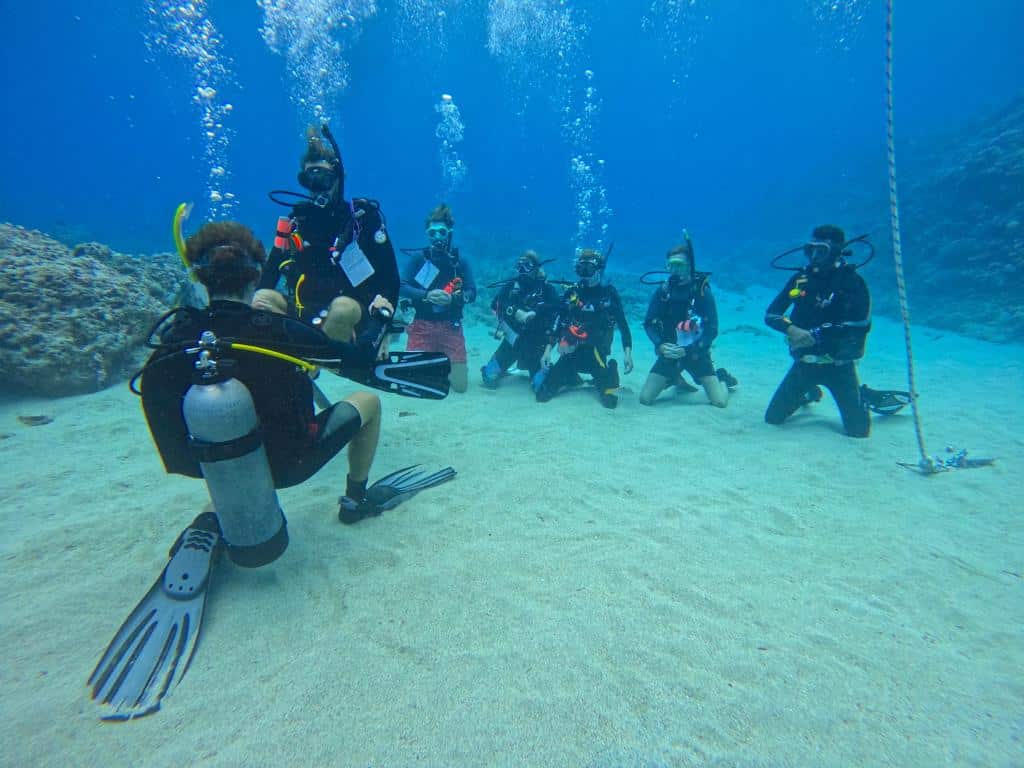
Final Thoughts
Embarking on your PADI Instructor Development Course is a significant step towards a fulfilling career in scuba diving. By preparing thoroughly and approaching the course with confidence and enthusiasm, you’ll set yourself up for success. Dive in, enjoy the journey, and embrace the opportunity to become an exceptional dive instructor!
Happy Bubbles and Good Luck with your IDC!
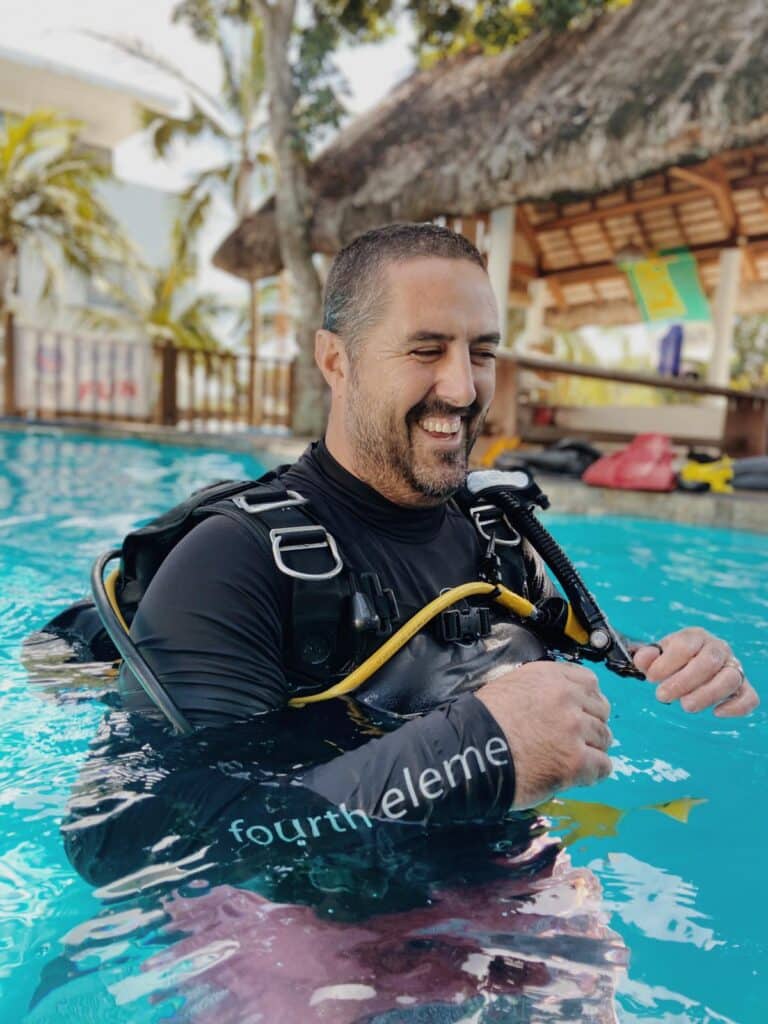
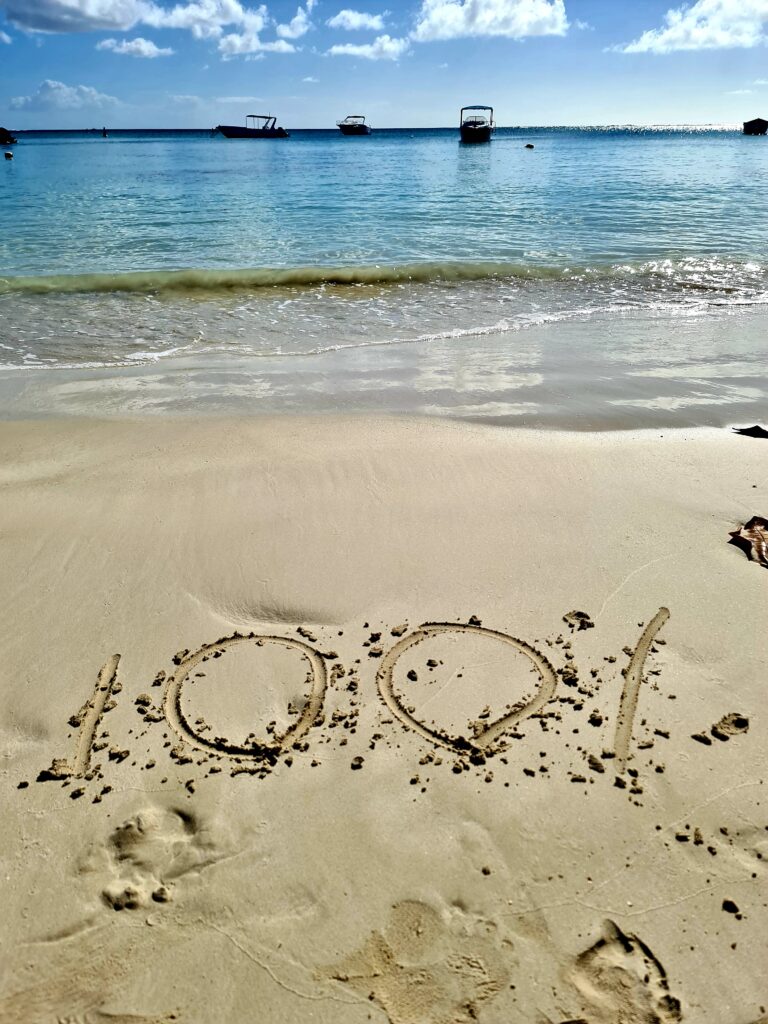

Click HERE to learn more about our IDC Program at Crystal Divers Mauritius – an award winning PADI 5 Star Career Development Centre.

